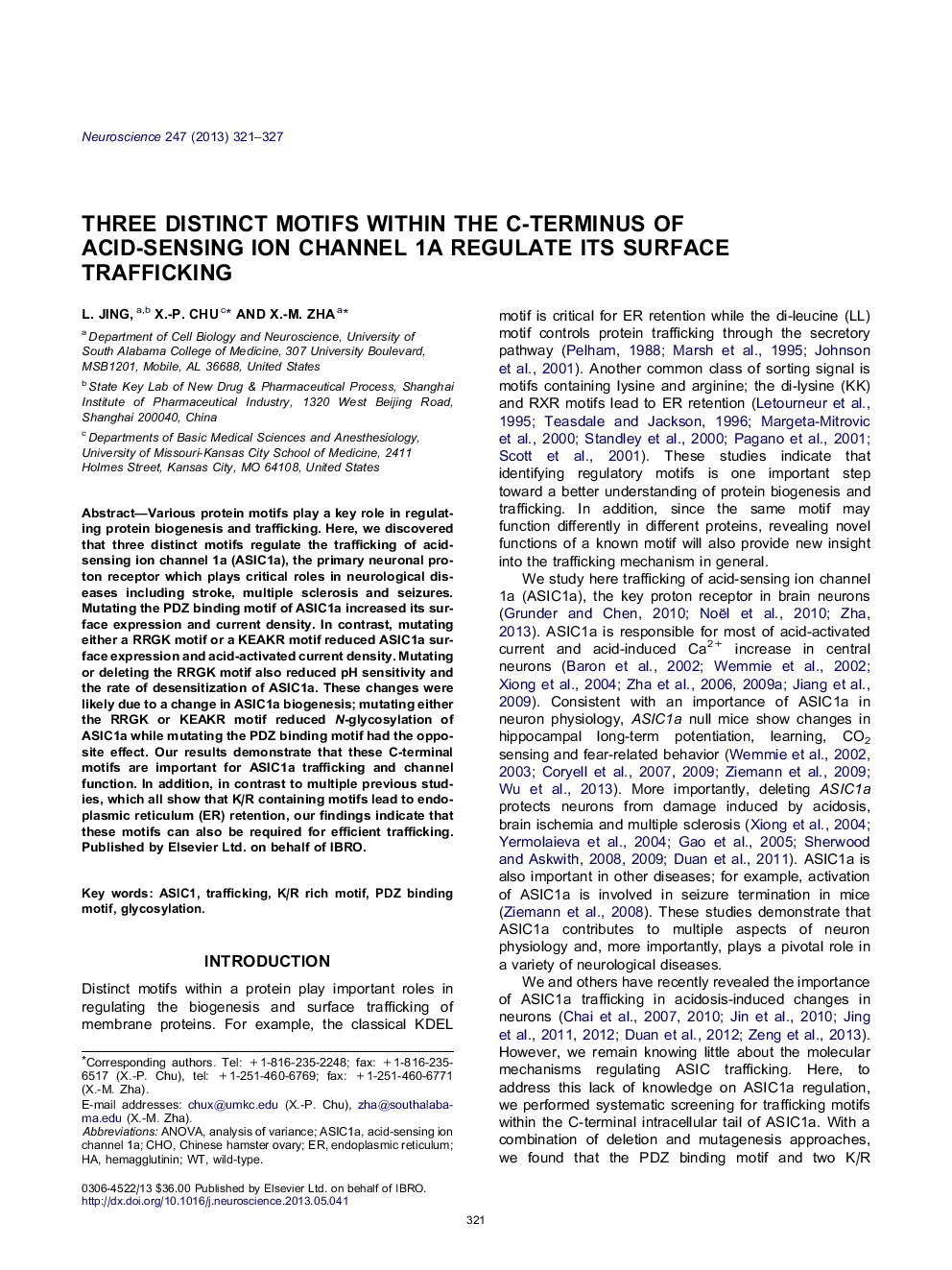| Article ID | Journal | Published Year | Pages | File Type |
|---|---|---|---|---|
| 6274792 | Neuroscience | 2013 | 7 Pages |
Abstract
Various protein motifs play a key role in regulating protein biogenesis and trafficking. Here, we discovered that three distinct motifs regulate the trafficking of acid-sensing ion channel 1a (ASIC1a), the primary neuronal proton receptor which plays critical roles in neurological diseases including stroke, multiple sclerosis and seizures. Mutating the PDZ binding motif of ASIC1a increased its surface expression and current density. In contrast, mutating either a RRGK motif or a KEAKR motif reduced ASIC1a surface expression and acid-activated current density. Mutating or deleting the RRGK motif also reduced pH sensitivity and the rate of desensitization of ASIC1a. These changes were likely due to a change in ASIC1a biogenesis; mutating either the RRGK or KEAKR motif reduced N-glycosylation of ASIC1a while mutating the PDZ binding motif had the opposite effect. Our results demonstrate that these C-terminal motifs are important for ASIC1a trafficking and channel function. In addition, in contrast to multiple previous studies, which all show that K/R containing motifs lead to endoplasmic reticulum (ER) retention, our findings indicate that these motifs can also be required for efficient trafficking.
Keywords
Related Topics
Life Sciences
Neuroscience
Neuroscience (General)
Authors
L. Jing, X.-P. Chu, X.-M. Zha,
